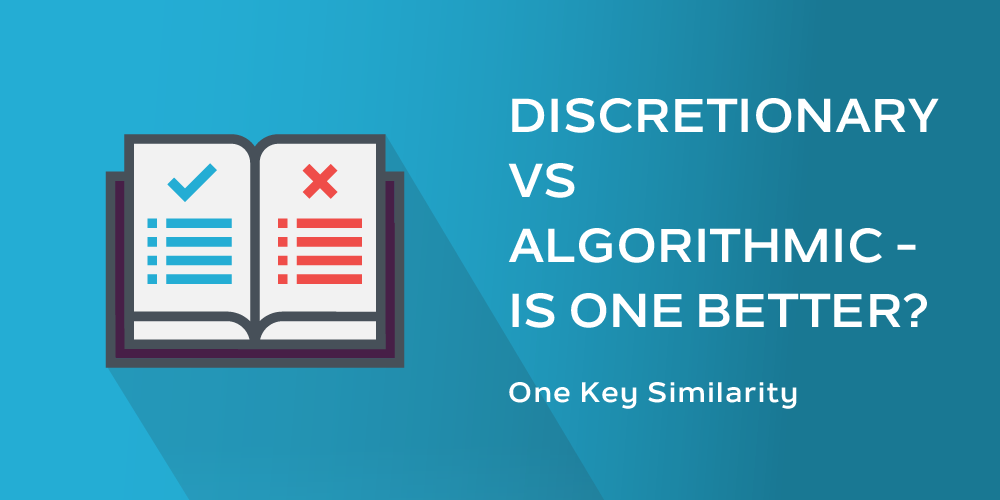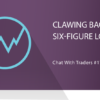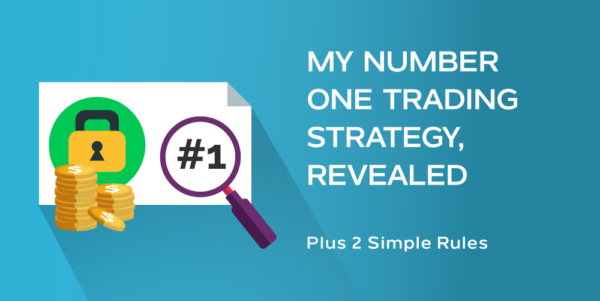
As the Founder and lead oil trader at the Oil Trading Group (OTG), you can imagine I receive all types of questions via e-mail and over the phone; one of the most popular questions I get is whether discretionary vs algorithmic trading is better.
This is a tough question to answer because the answer primarily depends on YOU. Having said that, this a great question none the less, so I’m going to throw my thoughts at it, and then you can decide what works best for you.
The first thing that we need to do is identify what the definition of each type of trading. Once defined, we need to determine if either method is purely rule-based or purely discretionary? Is it possible for either to be 100% rule or emotion based?
Many traders both new and veteran alike are confident that “Algo-Trading” is the only way to go; it’s (supposedly) PURELY rule-based, is established “on the back” of rigorous testing results, and it is designed to remove all emotion from day trading. According to Investopedia, algorithmic trading, “also referred to as Algo trading” and “black box trading,” is a trading system that utilizes complex mathematical models and formulas to make high-speed decisions and transactions in the financial markets. Algorithmic trading involves the use of fast computer programs and complex algorithms to create and determine trading strategies for optimal returns.
Next, we have discretionary trading. According to daytrading.about.com, “Discretionary trading is decision-based trading, where the trader decides which trades to make, based upon the information available at the time. A discretionary trader may (and should) still follow a trading plan with clearly defined trading rules, but will use their discretion on taking the trade and how it is managed.” Even in this definition it still suggests that a day trader “follow a trading plan WITH clearly defined rules”…hm, there are those rules again.
The real question is how can we trade algorithmically, purely based on rules without discretion, and how can we trade on a discretionary (decision made solely by the trader) without rules?
The simple answer is that we cannot! Alright, my friends, let’s “nutshell” both of these different styles of day trading. For the “Algo” method we need to face facts here, no matter how you slice it, there IS some discretion based on emotion and thought. For example, an algorithm is programmed to take a trade when X crosses Y moving average, the 70.5% Fibonacci level has been broken, but…volume needs to exceed XX. But volume needs to exceed XX? Who laid down the law for that? A setup is a setup, and we should take the trade, right? The answer could be yes, but the fact that we tossed a volume variable (likely based on emotions) into the formula could very well categorize this as a discretionary trade.
Let’s step over to discretionary trading now; we run into the same dilemma. We are trading upon what the market is doing (and even our gut instinct), but there are RULES involved…there have to be! In this case, I am the trader that can see support and resistance in my sleep, I “feel” the market getting ready to move, and I project where the trade may go, but I have rules…to take the trade set up, it needs to be a specific time of day and volume needs to confirm that I am making a high probability trade.
Are you confused now? Yeah, me too! What is the difference between the two methods? Simply put: one may be no better than the other when it comes to trading results, but the fact is that one is decided by the individual trader, and the other is programmed to make the decision. Regardless of what you think, both methods require discretion and both methods (very important) require rules. Regardless of what method or style you decide to trade, always know that day trading rules will be the common denominator.










